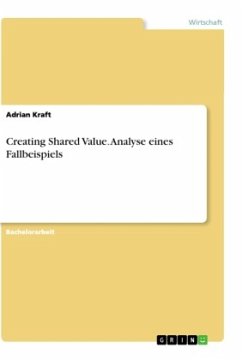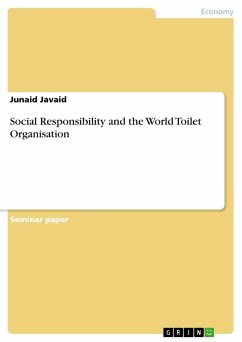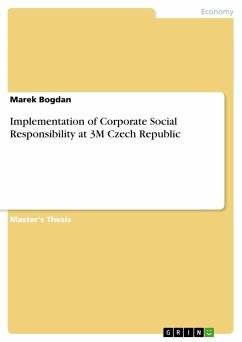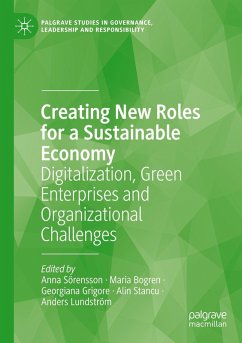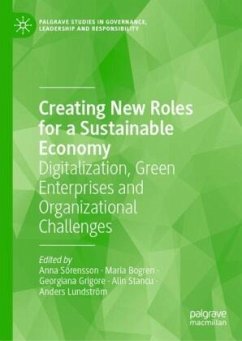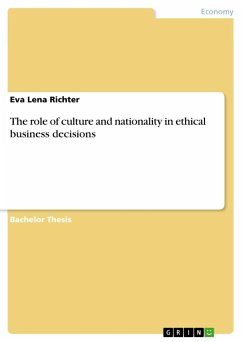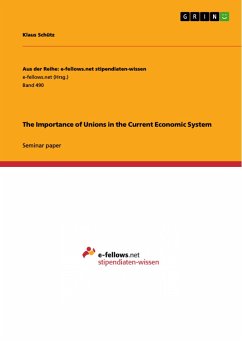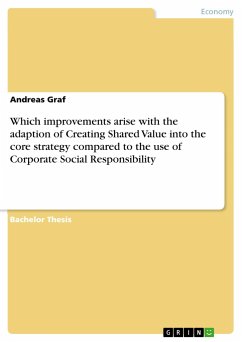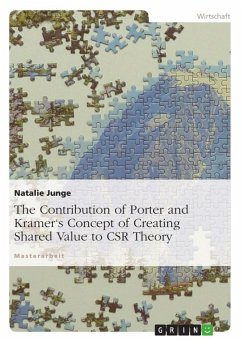
The Contribution of Porter and Kramer's Concept of Creating Shared Value to CSR Theory

PAYBACK Punkte
0 °P sammeln!
Master's Thesis from the year 2011 in the subject Business economics - Business Management, Corporate Governance, grade: 1,0, Liverpool John Moores University, language: English, abstract: Following the HBR article "Creating Shared Value" by Michael Porter and Mark Kramer published in January 2011 the author witnessed an online debate on the subject suggesting that CSV was hardly any more than a strategic move to support FSG, the consultancy run by Michael Porter and Mark Kramer. It was suggested that Porter and Kramer offered nothing new, but gave CSR a new name. But there were also voices cl...
Master's Thesis from the year 2011 in the subject Business economics - Business Management, Corporate Governance, grade: 1,0, Liverpool John Moores University, language: English, abstract: Following the HBR article "Creating Shared Value" by Michael Porter and Mark Kramer published in January 2011 the author witnessed an online debate on the subject suggesting that CSV was hardly any more than a strategic move to support FSG, the consultancy run by Michael Porter and Mark Kramer. It was suggested that Porter and Kramer offered nothing new, but gave CSR a new name. But there were also voices claiming that it would be great if CSV was reality. So, there seemed to be something about CSV that some people got and others denied. What was it? In this dissertation the ideas laid down in CSV are evaluated and appraised against related concepts of corporate social responsibility. Special focus lies on the aspects Porter and Kramer used to separate CSV from CSR: justification, value, and concepts for practical application.The main part of the study consists of a literature review on related topics. It is laid down that basic ideas of CSV have already been introduced in CSR, e.g. with corporate citizenship, sustainability, doing business at the bottom of the pyramid, or community relations. Philosophical considerations on corporate responsibility and political correlations give reason to regard CSV a competitive tool rather than an alternative approach to CSR. The concept is critically appraised from a societal perspective showing that CSV can be applied to benefit all, but does not lead to shared value in itself.In the second part of the dissertation an explorative study is conducted among energy suppliers and suppliers of outdoor equipment operating in the German market to find out whether Porter and Kramer's distinction between responsive and strategic CSR can be supported and whether CSV might deliver new options for the companies. The study shows that companies are to a far degree concerned with responsive CSR and gives reason to embrace the idea that it depends on the corporation's product and business model whether the trend on CSR can be used strategically or has to be applied in a responsive manner.The author introduces a management model, putting into relation the concepts of CSR and CSV. Plainly spoken, CSR is considered the justification and underlying assumption, while CSV is a management approach that can be applied to address corporate social responsibility.




